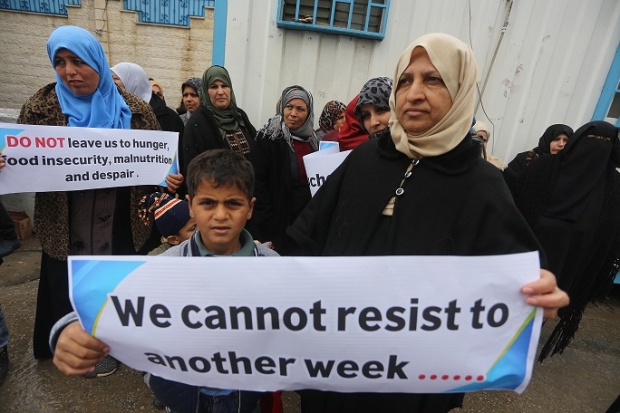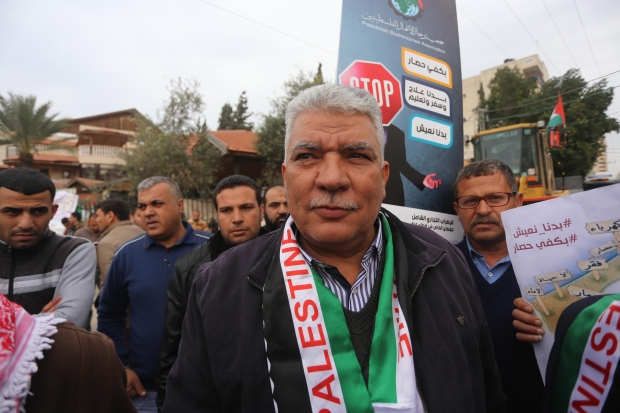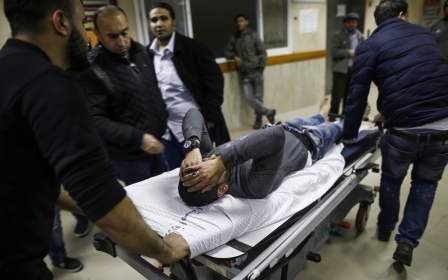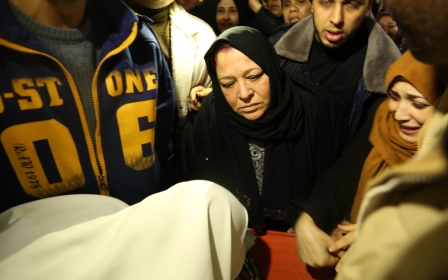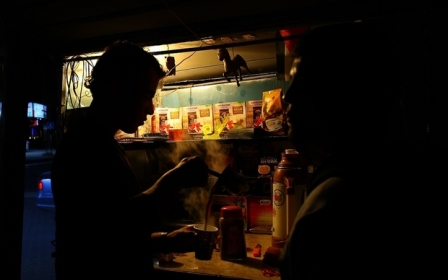'On the brink of collapse': Gaza's economy reeling from siege and division
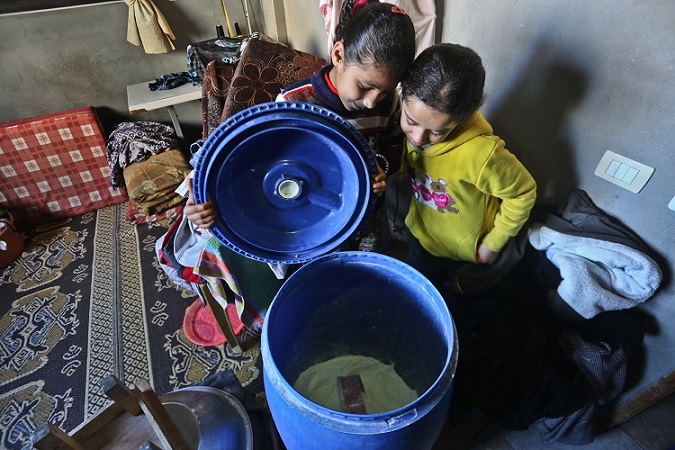
GAZA CITY - At the beginning of each month, Muzouza Abu Rayyash usually shops at the supermarket next to her house in Gaza City's Sheikh Radwan neighbourhood.
But this month, she had to cancel her trip after the World Food Programme (WFP) stopped handing out food vouchers to 60,000 beneficiaries in Gaza including Abu Rayyash's family.
She used to buy cooking oil and milk with the $20 voucher she received. Now Abu Rayyash said her family of seven will be given food supplies instead. But so far, they have only received flour.
"Why should my children be a victim of politics?" she said.
'We have only two options: either cut down more workers or close our shops and wait for the prison'
- Nabil Shurrab, clothing boutique owner
The WFP cuts - first announced in October and result of a budget deficit - come weeks after the US withheld $65m in funding for the United Nations Relief and Work Agency (UNRWA), in addition to $45m in food aid for Palestinians in the West Bank and Gaza that it had promised for an emergency UNRWA appeal.
These developments have only deepened the hardship in Gaza where an 11-year-old Israeli blockade have left nearly two million people trapped with little access to basic services, half of whom rely on aid, according to Oxfam.
And an agreement between the Palestinian Authority and Hamas brokered in Egypt back in September was supposed to bring relief, but the PA has yet to lift its sanctions.
Earlier this week, UN Secretary-General Antonio Guterres described the Gaza Strip as a "constant humanitarian emergency" and said the UN predicted that the enclave will become unliveable in 2020 "unless concrete action is taken to improve basic services and infrastructure".
Growing protests
In recent weeks, there have been protests as hundreds of Gazans, from UN employees to truck drivers to shopkeepers, demonstrate against the increasing challenges they face.
"The economic situation in Gaza is on the brink of collapse. All the economic indicators point to this," Maher al-Tabbaa, director of Gaza's Chamber of Commerce, told MEE this week.
'The economic situation in Gaza is on the brink of collapse. All the economic indicators point to this'
- Maher al-Tabba, director of Gaza's Chamber of Commerce
Among Gaza's more than 2 million people, Al-Tabbaa said 46 percent are currently unemployed and 65 percent of live on $1.90 or less each day.
Murjan Abu Aser was one of 150 truck drivers who protested on Monday at the declining situation in Gaza which has resulted in a sharp drop in the number of loads they are transporting across Kerem Shalom, the strip's only commercial crossing.
"I have a truck worth around $100,000. I do not know how I will pay for its installments," Abu Aser said. "I have seven family members, so I hope that the situation will return as it was in Hamas' era [before the group dissolved its control of Gaza in September].”
"We are industrious and we do not have political affiliations," said Nahed Shuhibar, owner of a private transport company. "My company used to transport 12 shifts a day. Now we carry only three shipments per month."
The number of supply trucks entering the strip weekly from Israel has recently dropped from an average of 900 to around 300, as a result of the weak purchasing power of the Gazan consumers. Each driver has only three shipments per month, Murjan said.
Shops without customers
At Gaza's Rimal shopping area around midday, usually the busiest time of day, the area is half empty this week.
Many of the storefronts hang banners advertising major discounts and winter sales in an attempt to draw customers. Some have dropped prices by as much as 40 percent.
But Nabil Shurrab, 44, who runs a boutique with clothes imported from Turkey and China, said even with sales, they no longer have enough money to buy his goods.
"We have only two options," he said. "Either cut down more workers or close our shops and wait for the prison."
One reason shopkeepers are feeling the pinch, said Al-Tabba, the director of the Gaza Chamber of Commerce, is that government employees have been not paid since last year after the PA cut their salaries, estimated to total $20m each month.
But Ahmad Majdalani, a member of the PLO's executive committee and close advisor to Palestinian President Mahmoud Abbas, refused to describe the PA’s measures as "punitive".
"The authority imposes legal taxes, unlike Hamas, which was taxing according to its wishes, although Hamas is still controlling the Strip and refuses to hand over the keys to the current government,” he said.
Last month, Gaza merchants staged a full-scale strike and closed the doors of their shops to protest local living conditions.
Unlike earlier strikes, al-Tabbaa said commitment to the protest was high, which he attributed to fear of "a dark future which might affect the already confused social and political situation".
This article is available in French on Middle East Eye French edition.
Stay informed with MEE's newsletters
Sign up to get the latest alerts, insights and analysis, starting with Turkey Unpacked
Middle East Eye delivers independent and unrivalled coverage and analysis of the Middle East, North Africa and beyond. To learn more about republishing this content and the associated fees, please fill out this form. More about MEE can be found here.


